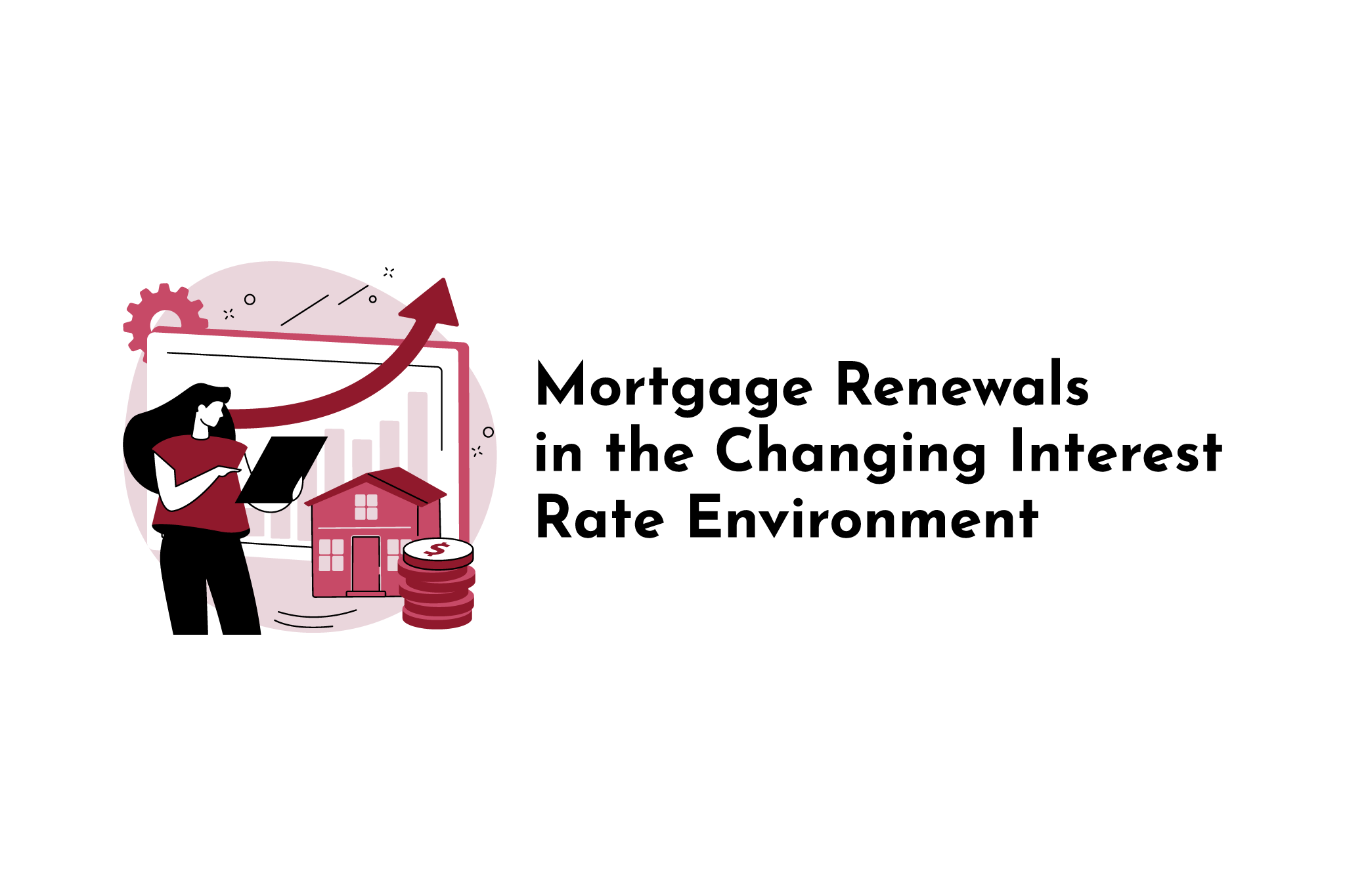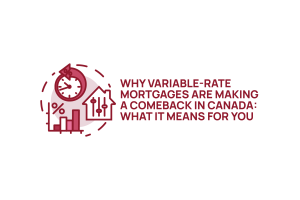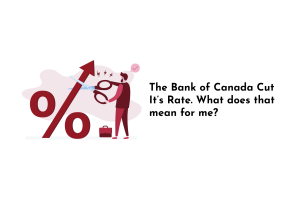Canadian homeowners are facing uncertain times. In the recent years leading up to 2022, Canadians have experienced a prolonged period where interest rates were historically low. This led to mortgage rates also being low for many years. Part of the effect of this long period of low mortgage rates was that mortgages were easier to qualify for, which helped fuel a period of growth in the value of homes. In 2018, the average Canadian house price was $488,682. In 2022, that number had climbed to $703,875. The fuel for this growth was that with mortgages being easy to qualify for, it puts lots of money in the market, and this creates more buyers and higher demand for real estate, driving prices up. Things have changed, though, and they have changed rapidly. Now, Canadians are in for a few years of uncertainty when it comes to mortgages and the value of their homes. The reason for this is that as the country began to recover from COVID-19, the economy began to experience inflation that pushed living expenses higher and higher. One of the main tools that the Bank of Canada has at its disposal to combat inflation is to increase interest rates. The idea behind this is that if it costs more to borrow money, people are encouraged to spend less; when people spend less, demand decreases, and eventually, this leads to a drop in the price of everyday goods. With the mortgage industry, the increases in interest rates from the Bank of Canada, as well as changing bond yields, led to them also increasing their rates. Now, homeowners are faced with an unknown future that can be a bit scary. Let’s look at what the issues can be and potential ways a mortgage broker like Strata Mortgages could help you come up with a plan on how to live in a changing interest rate landscape.
In this article:
- What is the Reason People are Concerned?
- What Can You Do to Help Deal with Higher Rates?
- How Else Do Higher Rates Affect Me at Mortgage Renewal Time?
- Conclusion
What is the Reason People are Concerned?
Homeowners are concerned about their mortgages for one main reason. Affordability. They need to know that they can afford to make the monthly payment and still have enough money left over to pay for their other expenses of daily life. When you look at an example, you can see why this is a concern. Consider a 5-year fixed-rate mortgage, 25-year amortization, that was taken out in 2018. In April of 2018, you could find fixed rate 5-year mortgages for 3.34%. If you had purchased a home for $800,000 with a 20% downpayment at that time, your loan to begin with would be $640,000, and your monthly mortgage payment would be approximately $3,150. After five years, the balance on the loan has been paid down to $550,564. If you are looking at renewing today, the interest rate will be in the range of 5.3%, and your monthly payment will increase to around $3700 even though the balance owing is lower than you started with. What many people are facing today is that if their mortgage renews under the current interest rate conditions, more of their after-tax income will need to be applied to that payment, leaving less for everything else. This is magnified by the fact that, due to inflation, the ‘everything else’ costs more, too. People are worried they won’t be able to afford to live in their homes.

What Can You Do to Help Deal with Higher Rates?
We have a few suggestions of things that could help you deal with a renewal at a higher rate.
- Take the new rates for a ‘test drive.’ While you have time remaining before your renewal, figure out what your monthly payment will be at the new rates. Then, try paying that amount and see how it changes your household finances. Trying it out this way allows you to figure out how to manage your household cash flow before you are forced into it. This can add to a feeling of comfort if you know you are able to handle the change going forward.
- You can lengthen the amortization on your mortgage. If you are five or ten years into your original mortgage, your lender may allow you to go back to what the original amortization on the loan schedule was. With the way mortgage payments are calculated, lengthening the amortization schedule will result in a decrease in the amount of your monthly payment. You do need to check with your broker, though, to make sure that this can be done without refinancing, adding additional legal costs and requirements.
- Apply for a rate hold on the mortgage. Many brokers can hold a rate for you for up to 120 days. This means that if rates increase, you are protected and can have the rate that was held for you. If you have a rate hold and rates do go up prior to your renewal, you may want to look at breaking the existing mortgage early and taking advantage of the lower rate you guaranteed. Again, talk to your broker. This may trigger penalties and other costs that you need to consider.
- You can take a shorter term on your mortgage. Remember when I said that five years is the most common term length on your mortgage? It is the most common, but it’s not the only choice. You can opt for a fixed-rate mortgage with a much shorter term. The downside is that shorter mortgages tend to have higher rates applied to them. The upside is that if the Bank of Canada gets inflation under control and can reduce interest rates, you aren’t locked into many years of higher payments.
How Else Do Higher Rates Affect Me at Mortgage Renewal Time?
The biggest way that you may be affected by the new rate environment is that you may find shopping your renewal to other lenders for better rates more difficult. When you change lenders, you need to be able to qualify as a new borrower. This means that you need to pass the stress test. Under today’s rates, to pass this test, you would need to qualify for the new mortgage at an interest rate of 7.3%. Understand this isn’t what you would pay, but the government requires you to qualify at a rate higher than the actual rate you will be paying to help ensure you could survive an increase in the future. This can make shopping around and changing lenders far more difficult. In many cases, the option that people will need to take is that they will need to opt into the renewal offer from their current lender, as that offer won’t require requalification.

Conclusion
You may or may not have a few years before you must deal with the potential of an increased mortgage payment. If you have the benefit of time on your side, take advantage of it. For example, it may be a good time to pay down other debts where the rates are higher. You could also take advantage of excess cash flow by building up an emergency fund. Having time on your side can only benefit you in the long run. While we don’t know exactly what is going to happen in the future, here’s what we are seeing in most economic forecasts. They do predict that rates will trend lower as inflation cools. What that means, though, no one is really sure. It seems unlikely that we will see rates return to the lows that they hit during the pandemic. With that in mind, if you have time with those low rates left, make the best of it. Talk to your mortgage broker and financial planning team to make sure that you are set up in the best way possible to move forward.







